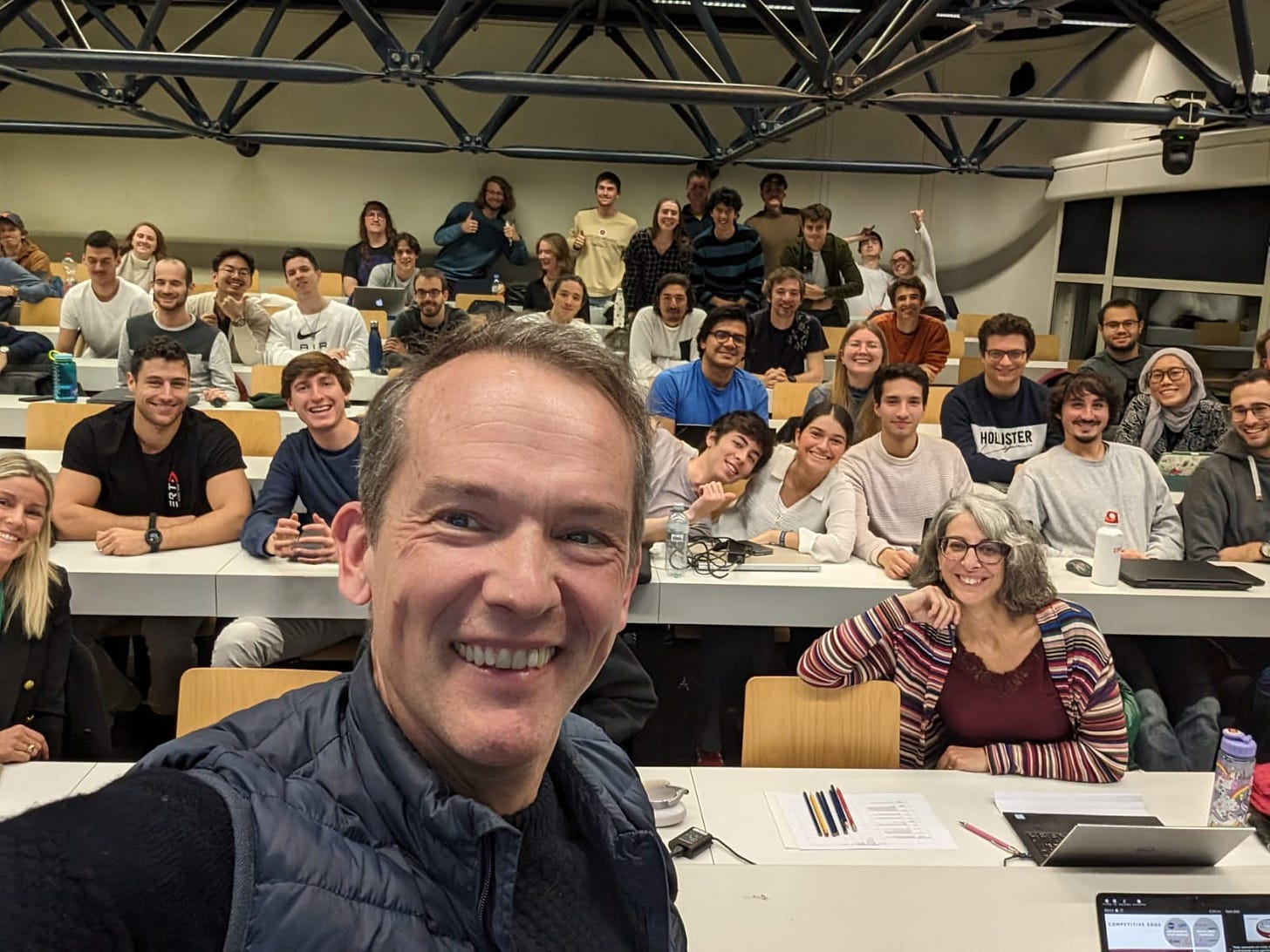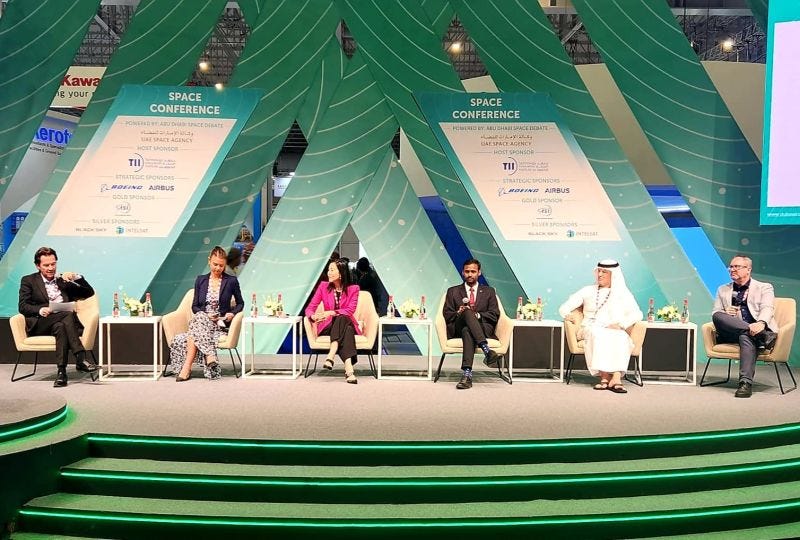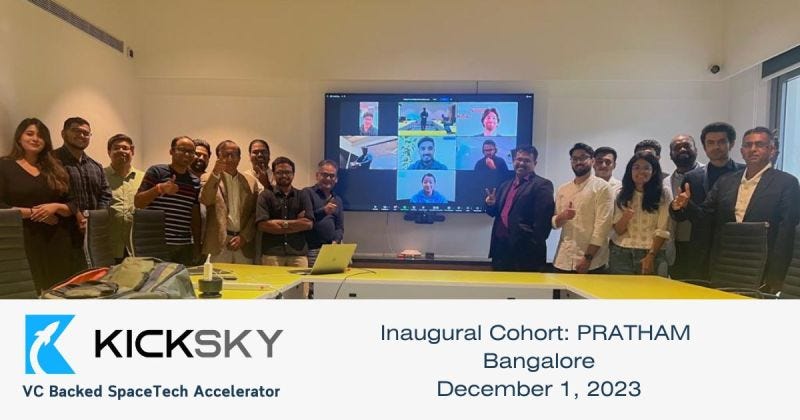Spotlight: Raphael Roettgen - General Partner @ E2MC
This week, we spoke with the founder of E2MC, a global space VC firm, the co-founder of Prometheus Life Technologies, a space biotech startup, and a lecturer on space entrepreneurship at EPFL.
Issue 76. Subscribers 11 180.
Unlock exclusive access to our handpicked selection of top deep tech investment syndicates, premier space conferences, and a comprehensive list of space investors and accelerators. More information here.

Summary
Average check size: it’s a range of course, but if I had to pick a median it would be approx. US$500k
Stage: seed & even pre-seed, with follow-on capability
Geography: global excluding geopolitically complicated countries. I think this is a really important point actually: we are one of the few space funds that can truly act globally, partly because we have not taken government money that would restrict us geographically, as is the case for many other funds. Space is a global sector and we help our founders cross borders all the time, e.g. taking non-U.S.-based companies to the U.S. I also want to highlight how bullish we are on India: we recently established the first space incubator in India, KickSky.
Sectors: space
Fund size: currently investing out of $20MM fund, with additional capacity via SPVs;
Notable portfolio companies: Space Perspective, Space Forge, Antaris Space, Privateer, Interstellar Lab
You transitioned from a career in hedge funds and investment banking to venture capital in space technology. What motivated this change?
I started my career in investment banking, specifically in M&A. I became frustrated by the 'mere' advisory aspect of it. I wanted to live and die by my decisions, so I switched to hedge funds, investing in global large-cap stocks. However, I then realized that this activity, while intellectually stimulating, did not help change the world.
As an aside, for those considering a similar switch, these are different skill sets. For example, one thing that was not clear to me but is now crystal clear is that in public markets investing, it is all about avoiding false positives, i.e., avoiding investing in a stock that you should not have invested in, which then drops 30-50% and blows up your portfolio. In venture investing, it's all about avoiding false negatives, i.e., not missing out on investing in the next Facebook. No one cares about false positives - it's an expected part of the game.
I also had an entrepreneurial stint in fintech. In fact, all three partners at E2MC were entrepreneurs at some point - in the case of my two partners, they were space entrepreneurs with an exit. I think this is important, as we understand what our founders are going through.
Let me also be clear that I have put in much more than the proverbial 10,000 hours of learning since I joined the space sector. This is a deep-tech sector and requires some respect. For years, and still now, I just read stuff.
You recently published your new book, 'To Infinity: The New Space Economy & How You Can Participate.' Who do you envision as the target audience, and what inspired you to write it?
I wrote this book to be accessible to people not yet part of the space sector. If we want to grow the space sector, we will need many more people to join it, such as entrepreneurs, employees, investors, and even just sympathizers. Right now, in the space sector, it still seems like you mostly run into the same people at the big conferences, and most business plans we receive are still from people who were already in the space sector. This is not surprising at this stage of the sector (I’m old enough to remember when the internet was mostly computer science people), but we also need to expand it urgently. Therefore, I wanted to write a non-technical book explaining why the space sector is at an inflection point, what the main business models are, why it is important, and how almost everyone can participate without having to be the proverbial rocket scientist. This is actually the motivation behind all of my outreach activities - I also teach courses on space entrepreneurship online and at universities, and I host my own podcast, the Space Business Podcast.
In your opinion, what is the most important quality for a founder in the spacetech industry?
There are all the usual characteristics of entrepreneurs, which are true in any sector, such as grit, perseverance, and that that elusive mixture of utter conviction on one hand, but also the ability to adapt one's views dynamically on the other. For space, in my view, there's also the need to be able to "translate" things between various realms. For example, being able to translate deep tech to generalist investors, or to translate between engineering and business staff, or to translate between engineers and non-technical customers. This will become even more important going forward, as the sector is naturally evolving from a focus on upstream business models (where you can get by "just" being an aero-astro engineer) towards a focus on downstream applications, where you usually need interdisciplinary expertise: space and something else.
You have been an advocate for increasing female representation in space technology. What steps do you believe society can take to address this disparity?
At E2MC, half of our current fund's portfolio has female C-levels and/or co-founders (vs. industry base rate of something like 10-20% women). And this is not artificial/forced in any way, it reflects the quality of the talent pool. I try to promote it in my educational activities, too.
For technical roles, a solid foundation in university education, or even earlier, is essential. When I completed my master's in machine learning about 10 years ago, I noticed that many seminars were exclusively attended by men - this needs to change. It's also crucial to highlight and give visibility to female role models in the field.
Beyond your work with E2MC, you also founded Prometheus, a spacetech startup that leverages zero gravity in orbit to produce organoids. How did you decide on this particular focus?
I believe in-space manufacturing is a clear example of business models that are only becoming viable now due to the decreasing cost of access to and operations in space. We actually know a lot of in-space manufacturing use cases that make sense, thanks to the thousands of experiments that were run on the ISS and even on the Shuttle over many years. However, they never made economic sense - but as space becomes cheaper, more of them will become economically viable. Human tissue organoids are one example. We were able to license proven technology. There was no team yet focusing on this, so we decided to take the initiative ourselves. We are very excited about this business as an example how a space application can provide clear positive impact here on Earth, as the organoids can be used to improve drug testing, and in regenerative medicine.
Thank you, Raphael!
At Space Ambition, we share E2MC's belief that we need to attract more individuals with diverse expertise to the space sector. Unfortunately, we still encounter many prospective entrepreneurs who limit themselves by believing they lack the necessary expertise. If you're one of them, don't worry. If you're interested in launching a spacetech startup but are unsure where to start, feel free to reach out to us at hello@spaceambition.org. We're planning to launch a kickoff group for individuals like you. Remember, the sky is not the limit; it's just the beginning!










